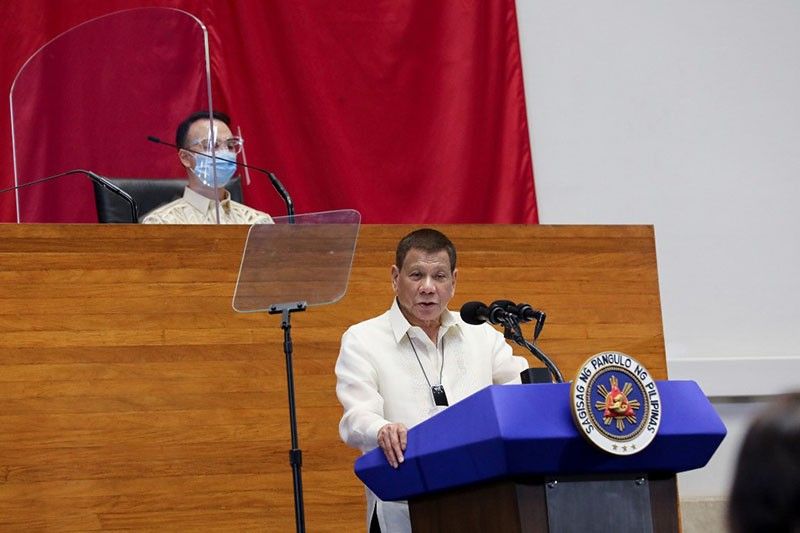Commentary: COVID-19’s political mutation and weaponization of law

The World Health Organization is monitoring a reported mutation of the COVID-19 that can potentially increase its transmission. Thankfully, this potential for mutation was only observed in a lab and not in “real life.” It is scary to imagine what effect a more transmittable COVID-19 would have on public health.
The effects of COVID-19, however, are not limited to health. The lockdowns that were put in place to slow the spread of the virus also took its toll on economies around the world. In the Philippines, this economic impact was immediately felt, especially by daily wage earners who instantly lost their source of income when the lockdown was put in place.
Home to one of the longest and hardest lockdowns in the world, the Philippines is now officially in recession, with its economy contracting by a record 16.5% in the 2nd Quarter of 2020. A recent survey conducted by the Social Weather Stations (SWS) also found that adult unemployment is at a record-high of 45.5%.
The impact of the COVID-19 on public health and the economy are, undeniably, the most obvious. However, the effects of the virus, when mixed with politics, are perhaps just as dangerous. According to the International Monetary Fund (IMF), the expanded role of governments in fighting the pandemic increases opportunities for its leaders to abuse their entrusted power. The Philippines perhaps is a prime example.
Just a month ago, the controversial Anti-Terrorism Act was signed into law by President Rodrigo Duterte. They said that the law is necessary to combat insurgencies and safeguard freedoms. But critics worry it will be used to silence political opposition. Among the contentious provisions of the law are those that broadly define what counts as “terrorism” and that allow warrantless arrests and detention based on mere suspicion. Seeing how effortlessly some law enforcers, empowered by the president’s words, can fabricate evidence and manufacture suspicion, it is feared that this law will have a chilling effect on the freedom of speech and the freedom of the press.
Despite the widespread opposition to the passage of the law, it was not met with the usual protests on the streets. Most advocates and civil society groups were unable to organize and peacefully demonstrate with a strict lockdown in place. But the frustration and opposition were palpable on social media, where bots and troll armies did their best to drown them out.
The virus and our increasing dependence on the internet have also provided the president the aircover to threaten private companies in the telecommunications sector. Under the guise of improving the country’s internet service, the president threatened to “expropriate” their operations if they do not enhance their “less-than-ideal” internet service by December. All this while conveniently ignoring his own government’s role in holding up the expansion of the country’s digital infrastructure.
Also, who can forget how Duterte finally delivered on his threat to close down the country’s largest broadcast network just a few months after the pandemic hit. With the help of his allies in the House of Representatives, ABS-CBN‘s franchise renewal was blocked. The closure of the broadcast company meant that thousands of its employees now count among the millions of Filipinos who have lost their jobs during the pandemic. ABS-CBN’s closure also robbed the Filipino public of a key source of credible health and safety information related to COVID-19.
At a recent webinar organized by the Philippine Bar Association on mass media and the law, Dean Mel Sta. Maria Jr., of the Far Eastern University Institute of Law, described the blocking of ABS-CBN’s franchise as a “macrocosm” of the government’s attacks on Philippine media. Through clever maneuvering of the legal system, Sta. Maria said that the government was able to “weaponize” the law against its critics and political opposition. He also pointed out that “the facade may be technically legal, but the underpinning motivations and the consequent result are unconstitutional against public policy, morals, and good custom.”
Even Duterte’s threat against the telecommunication sector in his fifth State of the Nation Address, he said, was an example of the weaponization of the law. According to Sta. Maria, Duterte’s impromptu threats are an abuse of the president’s immunity from suit and points out that “a legal right abused to the maximum to cause fear, using legal immunity pursuant to the law is, in effect, weaponizing that law.”
In the battle against COVID-19, the focus is primarily on addressing its health and economic effects and rightly so, with the number of cases growing and the number of jobs shrinking. However, COVID-19 has also created an opportunity for government leaders to abuse their power, which in turn weakens their ability to respond to public health and economic challenges. As such, it is essential that we also address the political and governance aspects of this pandemic.
Left unabated, COVID-19’s political mutation will undoubtedly lead to further degradation of public health and even more economic damages. We cannot sit idly by and allow those in office to normalize the abuse of power and the weaponization of the law. After all, the only vaccine for corruption is vigilance and transparency.
Paco Pangalangan is executive director of think tank Stratbase ADR Institute.
- Latest





























